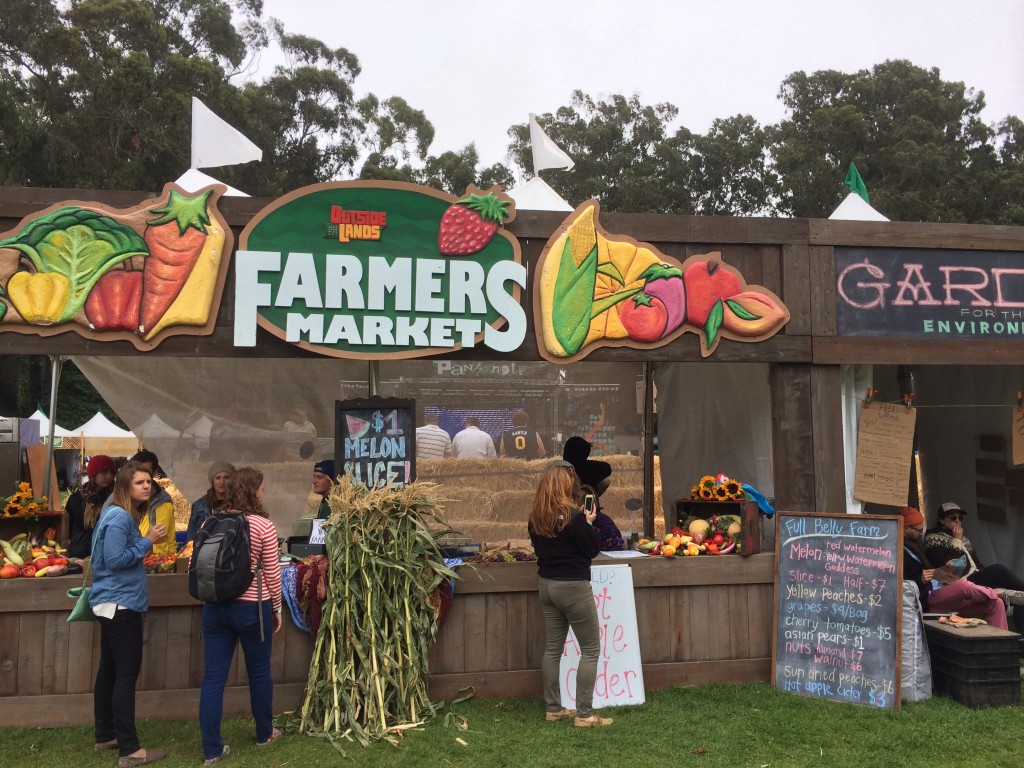It was evening at Coachella, the massive music and cultural festival that just wrapped up outside of Palm Springs, and people were heading to the food tents. But instead of waiting in line for something fried to munch on, about 200 festival goers attended a sit-down, white tableclothed feast of organic food and biodynamic wine.
The meal was part of a series of dinners thrown by Outstanding in the Field, the organization that has been setting up long rows of tables in farm fields and other rural settings for the last 16 years. Coachella’s trampled-down grass and drug-friendly lighting scheme might have been a far cry from the bucolic settings they usually choose, but that didn’t mean that the produce wasn’t just as local. In this case, it was purchased from farmer David Retsky whose farm, County Line Harvest, has locations in both Northern California and the Coachella Valley.
“[David and I] walked along the festival table and he said, ‘My farm’s five blocks away, right over that fence. All those greens you’re eating now, that’s from me.’ People are turned on by that,” says Jim Denevan, who founded Outstanding in the Field in 1999. This was his second year hosting dinners over the two weekends of Coachella, which has become the most celebrity-studded music festival in the country.
Occasionally someone will proclaim farmers “the new rock stars,” and while the cultural capital of the nation’s food producers isn’t quite that of Drake or Billy Joel, there’s little doubt that they can draw a crowd. It may be a stretch to assume that farm-to-table food will spark real change among people who just want to dance to the next DJ set. And it remains to be seen whether the music festival is the best place to educate people about where their food comes from, but that hasn’t stopped quite a few people from trying. The farm and food policy footprints at festivals is getting bigger, not smaller.
Last year Bonnaroo, the music and arts festival that takes place every June in Tennessee, had a zero waste café along with its other food offerings for the first time. It also began hosting Community Dinners, which are similar to the Outstanding in the Field meals. All the produce for these multi-course, communal dinners is sourced within 200 miles of the festival, and herbs come from the onsite Bonnaroo Victory Garden, which provides festival goers with information about gardening, wild foraging, and composting.

